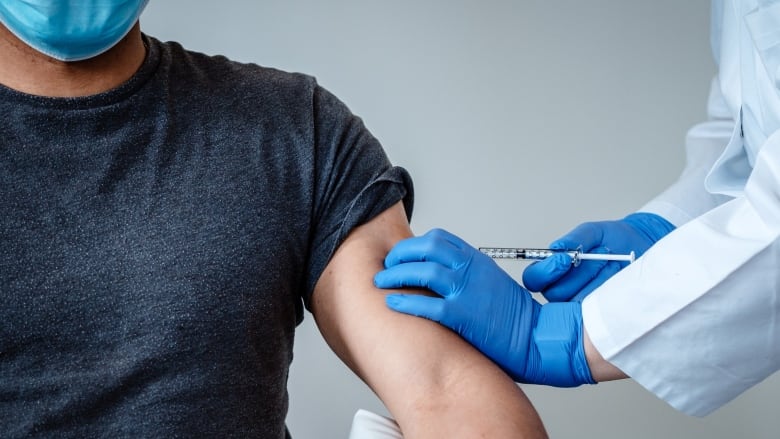What we know so far about how a COVID-19 vaccine will roll out in Nova Scotia
Canadian Armed Forces to help the province with logistical planning

The province will be ready to start administering COVID-19 vaccines to a select group as soon as they're approved and delivered, but it will be several months into 2021 before a widespread immunization program begins, according to Nova Scotia's chief medical officer of health.
Dr. Robert Strangsaid even though theNational Advisory Committee on Immunization has released recommendations, it will be up to provincialauthorities to create more precise rollout plans for those high-risk groups.
"There's a complicated calculus about vaccine amount, risk groups and facilities where you can immunize folks and that's the logistic planning which is going to be starting next week,"Strang said Friday at a COVID-19 briefing.
A team of logisticians from the Canadian Armed Forces will help with that work, Strang said.
The first people to receive the vaccine will be long-term care residents and workers, front-line health-care workers caring for COVID-19 patients, and people aged 80 and above.
The vaccines will be deliveredby Public Health and nursing staff in the targeted facilities
75,000 doses expected in first allotment
If one of the leading vaccine candidates, produced by Pfizer, isapproved by Health Canada as expected this month,Strang said Nova Scotia will receive a "very small amount"before year's end, followed by an allotment of 75,000 doses that will start to arrive in January.
But Strang stressed that there are no guarantees when it comes to numbers, especially given a recent halving in Pfizer's production target,attributed to a lack of raw materials.
In any case, Strang said the province's initial allotment will arrive graduallyover the course of about four months.

It will likely be the second quarter of 2021 before anyone outside the priority groups can access vaccine, and there are still many unknowns about how a widespread immunization program will be administered.
Pharmacies have played a major role in influenza vaccine distribution in recent years, and Amy Wagg of the Pharmacy Association of Nova Scotia said pharmacists are "eager" to extend that to COVID-19 vaccination they're just waiting for direction.
Strang said Friday that conversationswith doctors and pharmacists will start in the new year.
Pharmacists' readiness, Wagg said via email,will depend on the province's planning, including whether it provides supplies like syringes and how it manages cold storage.
Province looking for more freezers
One of the major challenges associated withthe Pfizer vaccine is that it needs to be transported and stored between -70 and -80 C. Standard physician offices, pharmacies and even hospitals don't have equipment that meets those extreme cold needs.
So far, Nova Scotia has just one freezer ready for COVID-19 vaccines, which was just acquired for the QEII Health Science Centre. Strang said Ottawa will soon be providing a second for the Public Health offices in Burnside, and Premier Stephen McNeil said the province is looking for more through the private sector.












_(720p).jpg)


 OFFICIAL HD MUSIC VIDEO.jpg)
.jpg)



























































































